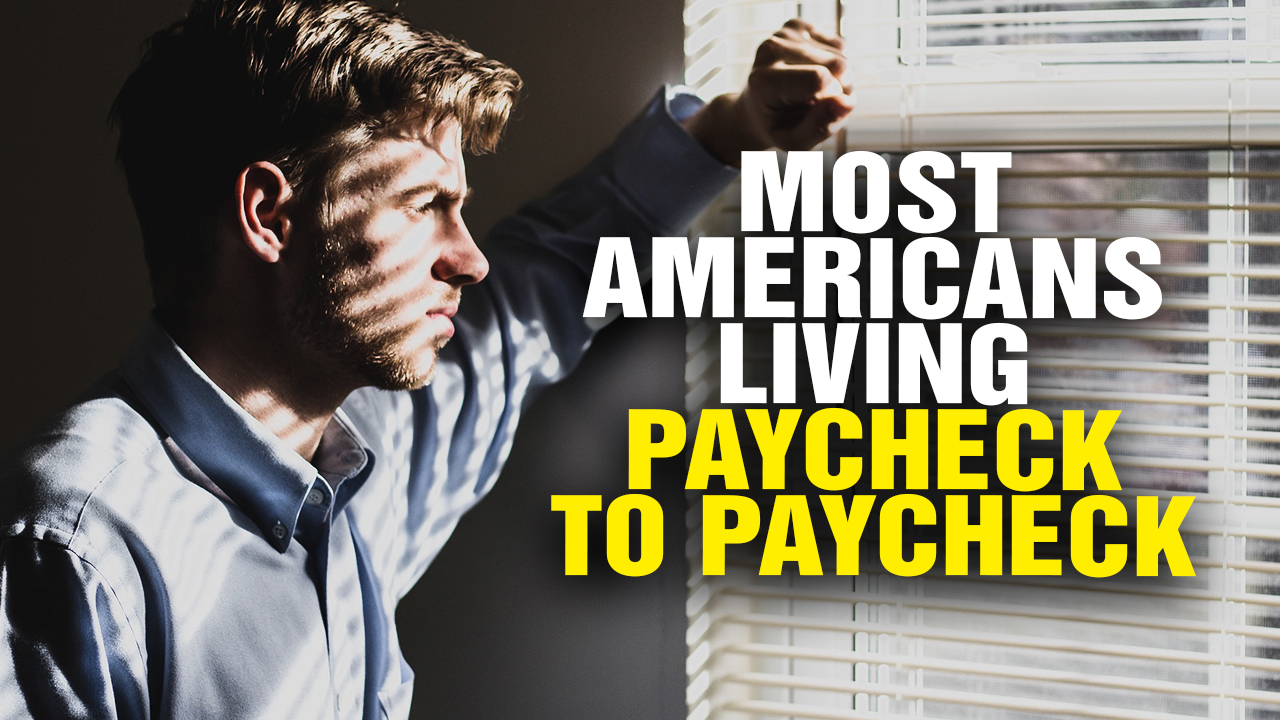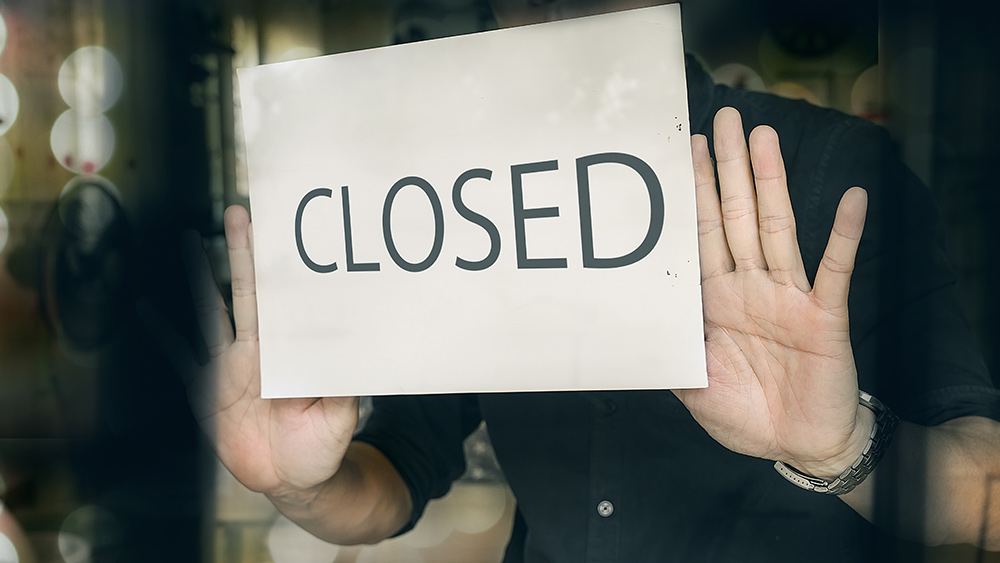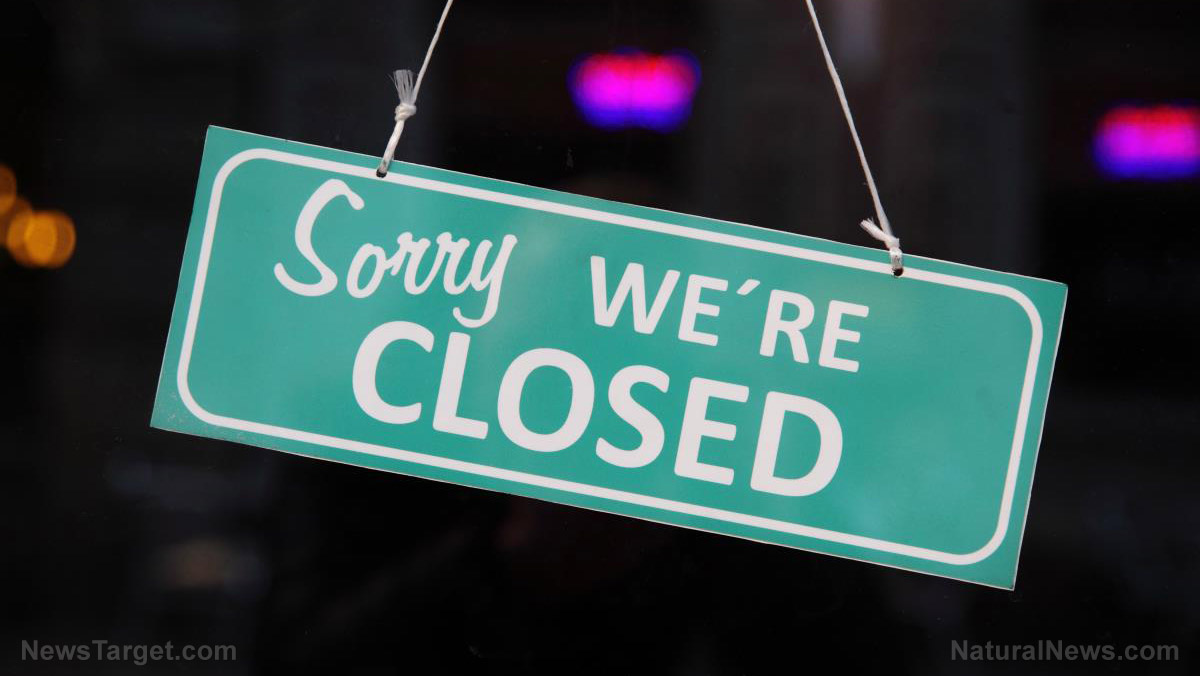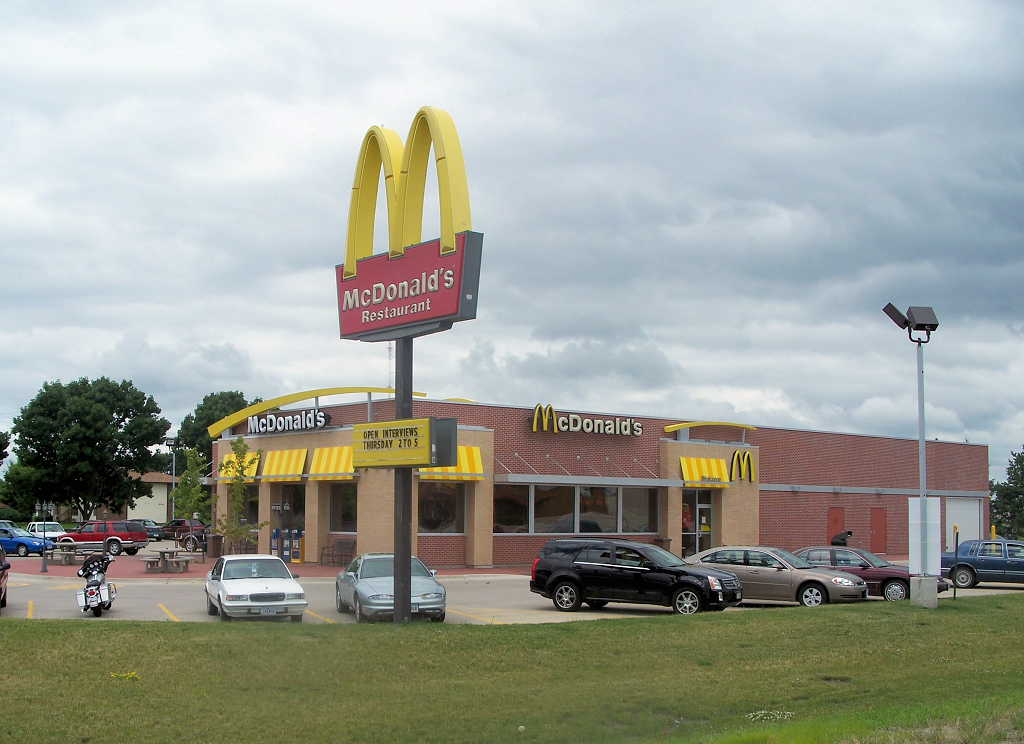STUDY: More American households are living paycheck to paycheck
10/28/2024 / By Ava Grace

A Bank of America study has found that more and more American households are living paycheck to paycheck (PTP), including a significant proportion of households that earn six-figures annually. This is far more than the percentage of Americans in dire financial straits five years ago.
In a report this month, the bank analyzed internal data to estimate the percentage of households that spent most of their income on necessities, which include expenses like housing and food. (Related: REPORT: About 70% of counties in battleground states now depend on government aid programs.)
Bank of America defines PTP as “households where necessity spending is more than 95 percent of their household income, leaving them relatively little left over for ‘nice to have’ discretionary spending or saving.”
While 50 percent of respondents to the survey said they felt themselves to be living PTP, the bank’s report found that around 30 percent of households were spending more than 90 percent of their income on necessary expenses, while around 25 percent were spending more than 95 percent of their income on necessary expenses.
More surprising is that the proportion of households appearing to live PTP falls only slowly as incomes rise. Around 20 percent of households with incomes above $150,000 also appear to be living PTP.
Older generations were found to be more likely to struggle to save. Thirty percent of the Baby Boomer generation said they were spending more than 95 percent of their paychecks on necessities, compared to less than 20 percent of Generation Z.
Housing expenses a significant factor in the growing number of Americans living paycheck to paycheck
One reason is that higher-income households may have bought larger, more expensive, homes and consequently have bigger mortgages. And often along with bigger homes come bigger insurance costs, property taxes and utility bills. It is also possible that as household incomes rise, some households may have more varied sources of income that are hard to capture – such as cash from sales of equities paid into brokerage account, the study reported.
Housing is a big factor in PTP. Median home sales prices have gone up 28 percent over the last five years. Home insurance costs have soared and so have property taxes. Mortgage News Daily reported that 30-year mortgage rates have surged back up to 6.85 percent from 6.11 percent on Sept. 11.
“In our view, the drivers could relate to households’ life cycle positions, such as having younger or larger families, as well as potentially geographic factors, including housing costs,” the bank wrote. “Many of these costs are unavoidable [they are by definition necessary] and it is unlikely these households would be able to reduce their spending without some major changes to, for example, where they live.”
Other studies have pointed to increasing feelings of financial insecurity among Americans. More than a third of U.S. workers were estimated to be living PTP, according to a survey conducted by Bankrate in August. Meanwhile, 30 percent of respondents in a separate Bankrate survey said they expect to never be financially secure.
Watch this clip of businessman and author Robert Kiyosaki warning about the rising number of Americans who are deeply in debt.
This video is from the NewsClips channel on Brighteon.com.
More related stories:
Survey finds three out of four Americans feel financially insecure.
American consumers are spending less as worsening inflation continues to batter households.
Sources include:
Submit a correction >>
Tagged Under:
Bank of America, bubble, collapse, cost of living, debt bomb, debt collapse, economic collapse, economic riot, economics, economy, finance, finance riot, inflation, money supply, paycheck to paycheck, pensions, personal finance, personal income, risk
This article may contain statements that reflect the opinion of the author
RECENT NEWS & ARTICLES
COPYRIGHT © 2022 EconomicRiot.com
All content posted on this site is protected under Free Speech. EconomicRiot.com is not responsible for content written by contributing authors. The information on this site is provided for educational and entertainment purposes only. It is not intended as a substitute for professional advice of any kind. EconomicRiot.com assumes no responsibility for the use or misuse of this material. All trademarks, registered trademarks and service marks mentioned on this site are the property of their respective owners.


















